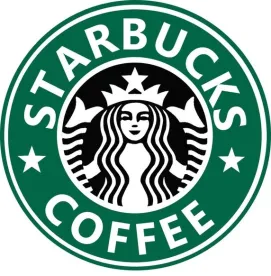Several months ago we covered two Second Circuit decisions that addressed false advertising claims related to ingredients and product labeling of foods, which reached differing results. Applying similar principles, a recent decision from the Southern District of California found that Starbucks’ packaging for its sour gummy candies did not reasonably suggest that the candies were made with all natural ingredients. Brown v. Starbucks Corp., No. 18-2286 (S.D. Cal. 2019).
In her complaint, on behalf of a putative nationwide class, plaintiff alleged that the packaging of Starbucks’ “Sour Gummies” candies was misleading because it suggested that the candies contain only natural ingredients. Plaintiff pointed to language stating “Apple, watermelon, tangerine and lemon flavored candies.” She argued that by omitting the fact that the candies contained artificial flavoring from the front of the package, while invoking the names of different fruits that the candies taste like, the packaging misleadingly implied that the candies were naturally flavored. Starbucks moved to dismiss.
The court granted Starbucks’ motion, finding that a reasonable consumer would not be misled by the Sour Gummies’ packaging. To start, the court observed that nothing about the statements on the front of the packaging was literally false because the candies were in fact flavored with fruit juice concentrates. The court then gave several reasons why “common sense” dictated that a reasonable consumer would not understand the gummies’ packaging as indicating that there were no artificial ingredients in addition to the concentrate: first, the term “flavored” implied that the candies contained artificial ingredients; second, unlike in decisions cited by the plaintiff, there were no statements or images on the packaging that affirmatively suggested that the product was all natural; and third, the product’s appearance—“a brightly-colored, gelatinous candy”—was clearly visible to the consumer through the transparent packaging and was inconsistent with the notion that it was made only with natural ingredients.
The reasoning in Brown offers an instructive contrast with the Second Circuit’s decision in Mantikas v. Kellogg Company, 910 F.3d 633 (2d Cir. Dec. 11, 2018). In Mantikas, the court was faced with packaging that prominently stated that the product contained whole grain, despite the fact that the grain content was mostly enriched flour. While the defendants argued that the ingredient list would indicate to a reasonable consumer that enriched flour was the predominant ingredient, the court found that consumers should not be expected to consult an ingredient list to correct a contradictory statement made on the front label. The Sour Gummies packaging, on the other hand, contained no such affirmative statements on its front label that a reasonable consumer might rely upon to assume that the product is all natural.
Thus, Brown is more akin to Jessani et al v. Monini North America, 744 Fed. Appx. 18 (2d Cir. Dec. 3, 2018), where the Second Circuit held that a reasonable consumer would not believe that Monini’s mass produced, modestly-priced olive oil was made with actual white truffle, “the most expensive food in the world.” Similarly, in Brown, Judge Miller drew on the overall context of the Sour Gummies to determine that no reasonable consumer would think that a vividly colored gummy candy was made with all natural ingredients.
Together, these decisions underscore the importance of both language and context in determining whether a product’s packaging would reasonably mislead consumers about its ingredients. Brown is also significant because it represents the first decision, to our knowledge, to find that the word “flavored” implies that a product contains artificial ingredients. Whether other courts adopt that reasoning remains to be seen, but if so it would give advertisers another argument in favor of dismissing similar ingredient-related false advertising claims.




 />i
/>i

